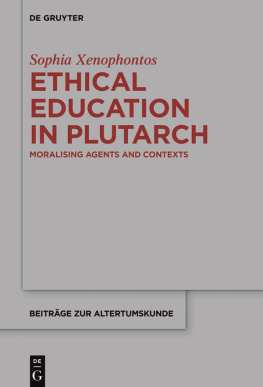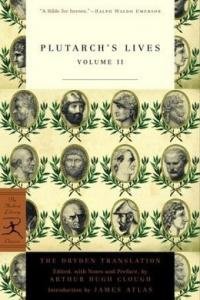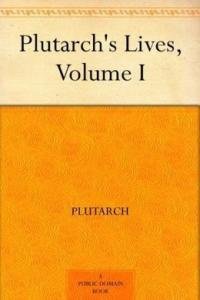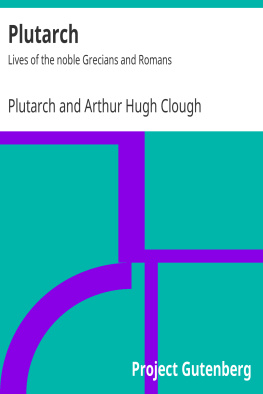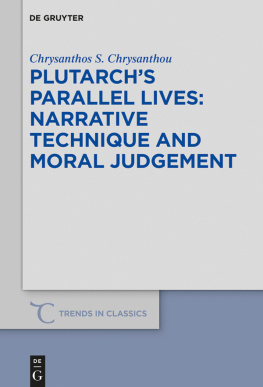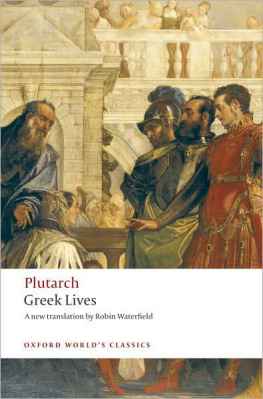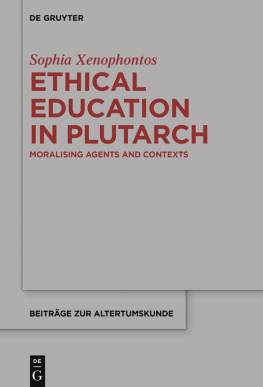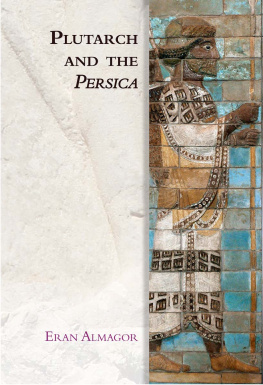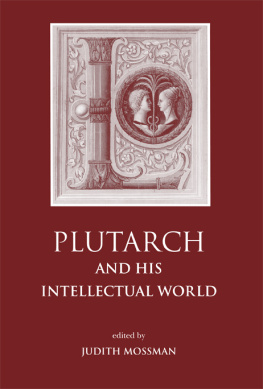Guide

Sophia Xenophontos
Ethical Education in Plutarch
Beitrge zur Altertumskunde

Herausgegeben von
Michael Erler, Dorothee Gall, Ludwig Koenen und
Clemens Zintzen
Band 349

ISBN 978-3-11-035036-4
e-ISBN (PDF) 978-3-11-035046-3
e-ISBN (EPUB) 978-3-11-038331-7
ISSN 1616-0452
Library of Congress Cataloging-in-Publication Data
A CIP catalog record for this book has been applied for at the Library of Congress.
Bibliographic information published by the Deutsche Nationalbibliothek
The Deutsche Nationalbibliothek lists this publication in the Deutsche Nationalbibliografie;
detailed bibliographic data are available on the Internet at http://dnb.dnb.de.
2016 Walter de Gruyter GmbH, Berlin/Boston
www.degruyter.com

To my parents, Andreas and Panayiota
Preface
This book is a substantial revision of my doctoral dissertation, submitted to and approved by the University of Oxford in the summer of 2011. From the inception of the project to the final shaping of this monograph, I have accumulated many debts to people who have supported me in one way or another. First of all, I am grateful to my supervisor Christopher Pelling, who was the main motivator of the thesis and assisted me in making this book a reality. My apprenticeship at his side, characterised by an intense love of learning and intellectual enthusiasm, has informed my academic attitude and accentuated my interest in Plutarchan studies. I would also like to record my sincerest gratitude to my examiners, Judith Mossman and Tim Whitmarsh, for their acute comments and perspicuous suggestions on the final version of the thesis.
For encouragement, supportiveness and stimulating discussions on Plutarchan matters and beyond, I am indebted to Ewen Bowie, Felix Budelmann, George Christodoulou, Patrick Finglass, Costas Panayotakis, Donald Russell, Philip Stadter, Luc van der Stockt and Oliver Taplin, as well as to colleagues and friends from the International Plutarch Society. But I must look further back too; a very warm thank you goes to Georgios Xenis, who was the first to show confidence in my abilities and urge me to engage with Classics at a more advanced level.
Moreover, I am deeply grateful to those individuals who have seen sections of my work: Tim Whitmarsh and Tim Rood commented on the first part of the thesis. Ralph Walker has offered useful observations on the philosophical background of have been most beneficial. I especially thank Jeffrey Beneker, who has commented in detail on the last two chapters of the book and alerted me to some of the broader questions arising from the issues I was examining.
Two generous awards, one from the Alexander Onassis Foundation and another from the A. G. Leventis Foundation, allowed me to compile this book in peace of mind. A word of gratitude should go to Magdalen College, Oxford, for furnishing me with pleasant surroundings and a most convenient location through all four years of my graduate studies. I would also like to thank the Faculty of Classics, Oxford, and all the kind people there who were always willing to help.
I started revising the manuscript during a Lectureship at the University of Cyprus (20122013) and then in the framework of a Postdoctoral Research Fellowship at the Universit libre de Bruxelles (ULB), sponsored by the Wiener-AnspachFoundation (20132014). I thank David Engels for welcoming me to Brussels and for his general guidance. The manuscript was completed at the University of Glasgow, where I currently hold a Lectureship. I am indebted to all my colleagues there who have made me feel at home and supported my venture, but also to my students for inspiring me in less obvious ways.
Special thanks should go to the series editor at De Gruyter, Mirko Vonderstein, for his support through the various stages of the publication of this book, to the project editor, Elisabeth Kempf, for her careful and efficient engagement with my manuscript, and to my excellent copy editor, Johannes Parche. I gratefully acknowledge the contribution of the anonymous readers, whose conscientious remarks have helped me enhance the resulting product to a large extent.
Above all, I wholeheartedly thank my partner in life and academia, Petros Bouras-Vallianatos. Petros has been an acute reader of the whole manuscript, but also a source of strength with his unfailing companionship during the research and writing of this book. Finally, I am grateful to my brothers, Christos and Kyriakos, and especially my parents, Andreas and Panayiota, for being unstinting in their affection and understanding in every imaginable way. I owe who I am to them a debt that can never be repaid in full, but which I hope at least partially to repay by dedicating this book to them.
| Glasgow, January 2016 | Sophia Xenophontos |
Editions, abbreviations, and other conventions
In citing passages from Plutarch, I have used the Teubner editions: for the Parallel Lives those by K. Ziegler (19571980, Plutarchi: Vitae Parallelae , 4 vols. Leipzig); for the Moralia those by M. Pohlenz, C. Hubert, et al. (19291978, Plutarchi Moralia , 7 vols. Leipzig). I have occasionally consulted the new Plutarch edition by P. D. Bernardakis and H. G. Ingenkamp (2008, Plutarchi Moralia , 2 vols. Athens). For Plutarchs fragments, I relied on F. H. Sandbach (1967, Plutarchi Moralia VII . Leipzig). For Platos Republic I follow the recent OCT edition by S. R. Slings (2003, Platonis Respublica . Oxford); and for the rest of Platos works the OCT edition by J. Burnet (19051913, Platonis Opera , 5 vols. Oxford). The Greek and Latin texts by other authors come from standard editions.
The Parallel Lives are cited by chapter and section of the Teubner edition of Sintenis (18521855). For the sake of simplicity, the comparisons following the Lives are referred to separately with the indication Comp ., the abbreviated names of the pair, and the numeral beginning from one (1), e. g. Comp. Per. et Fab . 1.3. The Moralia are cited by Latin title and Stephanus page (Frankfurt edition of 1599).
At the end of this section, I provide the reader with a comprehensive list of all the abbreviations used for Plutarchs works (see below). For the titles I have consulted T. Duff. (1999, Plutarch s Lives: Exploring virtue and vice . Oxford, xivxvii), making minor changes to his orthography; and D. A. Russell (1973; revised edition 2001, Plutarch . London), who in the Appendix (pp. 16472) provides a list of the works of the Moralia in their traditional order, and gives full English, Greek, and Latin titles, as well as a list of the paired Lives (pp. 1734).
Translations are taken from the Loeb Classical Library, often with minor modifications; for the Moralia the Loeb editions are by F. C. Babbitt and various other translators (19272004, Plutarch Moralia , 16 vols. Cambridge Massachusetts-London); for the Lives by B. Perrin (19141926, Plutarch s Lives , 11 vols. Cambridge Massachusetts-London). I also consulted the recent translations of select Greek and Roman Lives by R. Waterfield (19981999, Oxford Worlds Classics). Note that the Loeb edition has longer chapter sub-sections than the Teubner, and thus differs slightly in section numbers.

